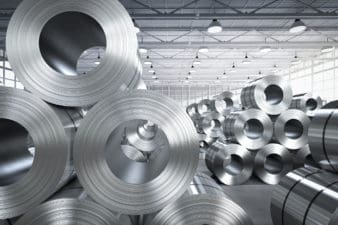Fertilizer stocks entered a protracted decline in 2023 as crop nutrients’ prices normalized following a surge triggered by Russian aggression over Ukraine (and subsequent international responses to the conflict). However, industry stocks are back in focus in October following Hamas’ surprise attacks on Israel. Nutrien (TSX:NTR) stock gained 7% within a week, and Mosaic Company (NYSE:MOS) stock is up 8.4% during the same period.
Market players are concerned that a new war in Israel could draw Iran into the conflict and cause another wave of disruptions to global fertilizer supply chains. Iran was the world’s 11th-biggest chemical fertilizer exporter during the 2021-2022 farming season.
Naturally, I do not seek to profit from wars; however, the fertilizer market is a key primary market and remains a promising investment destination for intergenerational wealth builders as the industry strives to feed a growing global population.
Nutrien and Mosaic are potentially high-rewarding, long-term investments to consider in a retirement account. Let’s have a closer look at each fertilizer stock with a view to buying the best among the two.
Nutrien stock
At US$45.1 billion in revenue during the past 12 months, Nutrien is a big player in the fertilizer and crop inputs trade, and it’s one of the 500 largest companies by annual revenue globally. The company gained market share internationally following a Russian fallout with several trading partners. Its expansionary acquisitions in Brazil could be sources of new growth over the long term.
That said, softer global fertilizer markets in 2023 necessitated significant asset impairments and goodwill write-downs during the second quarter of this year — an acknowledgment that acquired assets aren’t likely to perform as originally expected. Nutrien impaired the book value of one of its mines (which has a shorter life span) by US$233 million and acknowledged a US$ 465 million goodwill write-down — mostly on its recently acquired retail assets in South America in August.
Although Nutrien’s revenue of US$17.8 billion during the first half of 2023 printed a 19.9% year-over-year decline, competitors, including Mosaic, have seen worse declines. The industry giant has a resilient business that continues to generate positive free cash flow during the softer market, and management remains committed to share repurchases and dividend raises.
New investors in Nutrien stock today may earn quarterly dividends that yield 3.4% annually before expected raises next year. Bay Street analysts rate Nutrien stock a Buy with an average analyst price target of $107.94, which implies a 31% potential upside over the next 12 months.
Nutrien stock trades cheaply at a forward price-to-earnings (P/E) multiple of 11.6 times next year’s expected earnings per share.
Mosaic stock
Phosphate and potash producer Mosaic is a United States-based US$11.8 billion company that generated US$16.8 billion in revenue over the past 12 months. Mosaic rode the wave of a fertilizer market boom in 2022 to post a 54% annual revenue growth for the year. However, revenue dropped by 24.7% year over year during the first half of 2023, and margins have contracted.
Unlike Nutrien, which recognized significant goodwill write-downs this year, Mosaic hasn’t touched its US$1.1 billion goodwill balance yet. Management still believes that acquired assets have the capacity to generate revenue, operating earnings, and cash flows well in line with previous estimates.
An investment in Mosaic stock could generate about 2.2% in annual dividend yield. The non-Canadian company’s dividend may not be eligible for Canadian tax credits, and its net yield may fall further behind Nutrien’s nominal 3.4% dividend yield once Canadian taxes kick in.
Wall Street analysts recommend investors Hold onto their Mosaic stock, with an average analyst price target of US$45.30, which implies more than 26% in potential upside over the next 12 months.
Most noteworthy, Mosaic stock trades cheaper than Nutrien stock, given a forward P/E of 10.5.
Which fertilizer stock to buy?
Nutrien stock offers wider exposure to the global agricultural inputs market and pays a marginally higher dividend yield out of the bat. Future dividend raises may get investors to a 5% annual yield faster than Mosaic stock can.
That said, Mosaic stock is a tad cheaper than Nutrien stock, given its lower earnings multiples.
Most noteworthy, although both stocks pay U.S. dollar-denominated dividends, Mosaic is a U.S. stock that carries added currency-related risks than Nutrien since it’s a foreign stock that trades in U.S. dollars on an American exchange.





